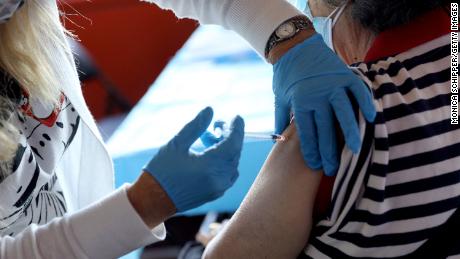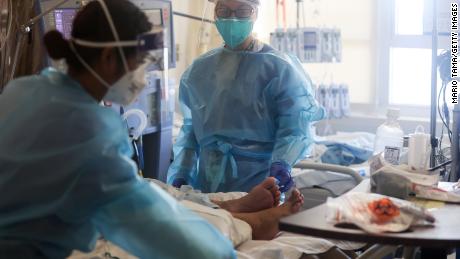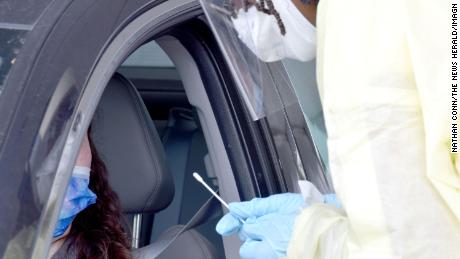There may be trouble ahead as dangerous Covid-19 variant appears to cause hospitalization spike in a Missouri city
“I just don’t know if there’s something out there that we’re not doing that for sure will get us over the score line,” Dr. Marcus Plescia, the chief medical officer at the Association of State and Territorial Health Officials, told CNN. “That’s the problem — we’re doing all the things that we know can be effective, but it’s just allowing us to maintain this steady state, when what we really need to do is bump the demand back up.”
“I think it is the Delta variant and there is a lot of kindling with low vaccination rates, so it’s spreading very rapidly,” Edwards said. “Almost all of our cases are unvaccinated people that, in my opinion, have put themselves in harm’s way during this pandemic.”
Fortunately, Plescia said, there are tactics underway to encourage vaccinations that have seen success.
Some states, such as Colorado, are making a final push by calling unvaccinated people directly to provide them with information and help schedule appointments. Incentives — from the big ones like million-dollar lotteries to free tickets to the zoo or food coupons — have also worked, Plescia said.
A strategy Plescia and other experts have supported recently is a transition from mass vaccination efforts to local provider’s offices — a plan that moves slowly but can be effective, he said.
“We do anticipate that this is going to be an important function of public health for quite some time,” Plescia said.
Young adults fall behind in vaccinations
Many officials have turned their vaccination attention to young adults — a population that is low in both vaccination rates and the desire to be vaccinated, US Centers for Disease Control and Prevention studies show.
If the weekly pace of vaccinations continues at the rate from the week of May 22, only 57.5% of adults under the age of 30 will have received at least one dose of Covid-19 vaccine by the end of August.
More than 71% of those between 30 and 49 years would have been vaccinated with at least one dose by the same time, as well as nearly 86% of adults 50 to 64 years old and nearly 95% of seniors 65 and older, the study found.
The authors of the study said that “a desire to protect others and resume social activities were motivators to get vaccinated, suggesting that messages emphasizing that vaccination would allow them to resume social activities and encouraging vaccination for the greater good might be effective.”
Celebrations still risk infections, study finds
Along with increasing vaccinations have come more reopenings and social gatherings, including weddings and birthday and holiday celebrations.
In many places, the reopenings have not inhibited progress on combating the pandemic. On Monday, Maryland reported no Covid-19 deaths for the second day in a row and Virginia reached the milestone of having 60% of adults in the state fully vaccinated.
Researchers used private insurance data from 6,535,987 individuals living in 2,926,530 households between January 1 and November 8, 2020. They compared Covid-19 infections between households with and without a birthday in the previous two weeks, adjusting for household size.
They found that households were more likely to have confirmed Covid-19 cases two weeks after a birthday. The risk was even higher when the birthday was for a child, the study reported.
While informal gatherings can impact the spread of Covid-19, they are harder to track than more formal occasions. The team says birthdays, which are often celebrated with gatherings, offer the opportunity to study their impact on the spread of Covid-19.
“This study suggests that events that lead to small and informal social gatherings, such as birthdays, and in particular, children’s birthdays, are a potentially important source in SARS-CoV-2 transmission,” the team wrote.
CNN’s Jen Christensen, Virginia Langmaid, Deidre McPhillips, Jennifer Henderson and Lauren Mascarenhas contributed to this report.
![]()








